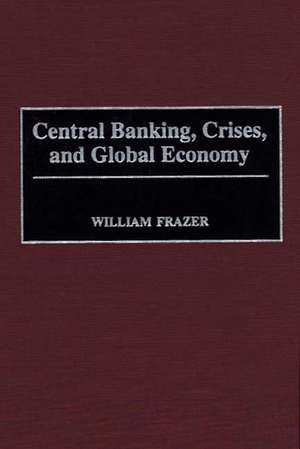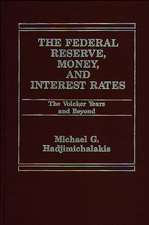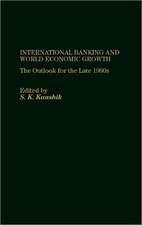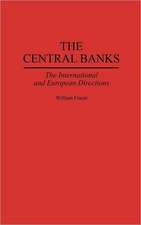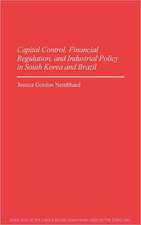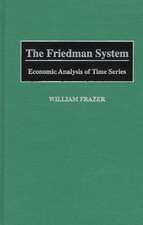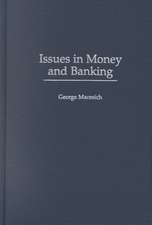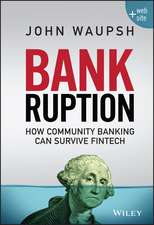Central Banking, Crises, and Global Economy
Autor William Frazeren Limba Engleză Hardback – 29 ian 2000 – vârsta până la 17 ani
Preț: 441.21 lei
Preț vechi: 606.15 lei
-27% Nou
Puncte Express: 662
Preț estimativ în valută:
84.44€ • 91.68$ • 70.93£
84.44€ • 91.68$ • 70.93£
Carte tipărită la comandă
Livrare economică 22 aprilie-06 mai
Preluare comenzi: 021 569.72.76
Specificații
ISBN-13: 9780275964634
ISBN-10: 0275964639
Pagini: 424
Dimensiuni: 156 x 235 x 29 mm
Greutate: 0.7 kg
Editura: Bloomsbury Publishing
Colecția Praeger
Locul publicării:New York, United States
ISBN-10: 0275964639
Pagini: 424
Dimensiuni: 156 x 235 x 29 mm
Greutate: 0.7 kg
Editura: Bloomsbury Publishing
Colecția Praeger
Locul publicării:New York, United States
Notă biografică
WILLIAM FRAZER is Professor of Economics at the University of Florida. He has held faculty fellowships at Harvard and the University of Pennsylvania and had research assignments at Federal Reserve banks in New York and Chicago. He has written widely, including The Friedman Systems: Economic Analysis of Time Series (Praeger, 1997), The Florida Land Boom: Speculation, Money, and the Banks (Quorum, 1995), The Central Banks: The International and European Directions (Praeger, 1994), and The Legacy of Keynes and Friedman: Economic Analysis, Money, and Ideology (Praeger, 1994).
Cuprins
PrefaceAn Analytical/Institutional BaseIntroductionFractional Reserves and Selected Causal LinkagesLiquidity and Nominal and Real Rates of InterestPolicy Experiments, Causal Linkages, and the Deutsche Bundesbank en Route to Monetary UnionU.S. Policy Experiments and the Big U-TurnOpen Market Operations, Friedman-System Linkages, and a Money-Policy SurrogateBundesbank History, Linkages, and Inflation-Rate TargetingInternational Dimensions and Crises with Global ImpactThe Managed Financial System: The International SideThe Asian Crises: Asia and ElsewhereAsia, Elsewhere, and the IMFThe Golden StraightjacketThe Exchange-Rate and Reserve- and Capital-Flows MechanismsGrowth and Inflation Rates Across Borders and TimeCentral Banking, European, and Other ExperiencesThe Big U-Turn and Monetary UnionSome Money and Banking LessonsThe Global EconomyThe Great Transformation, the Big U-Turn, and RussiaThe Global Economy and Developing EconomicsGlobal EconomyReferencesIndex
